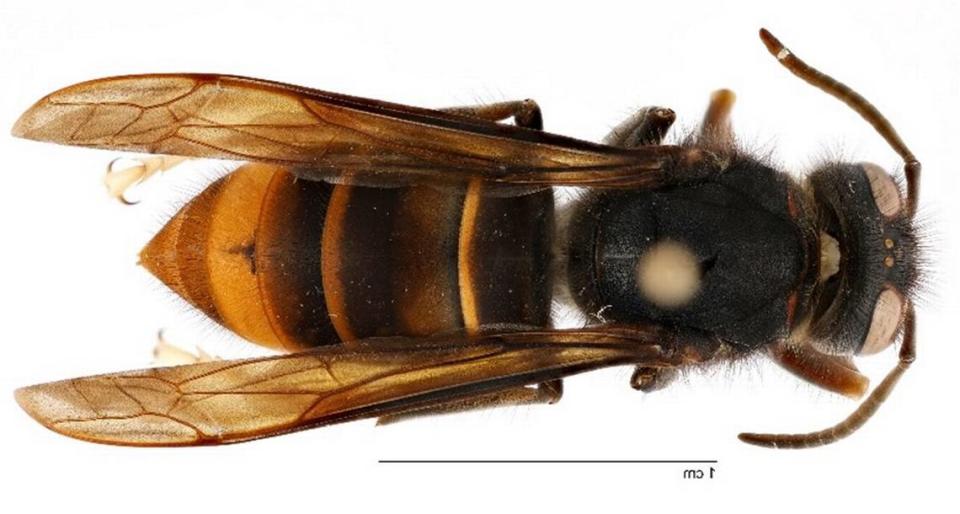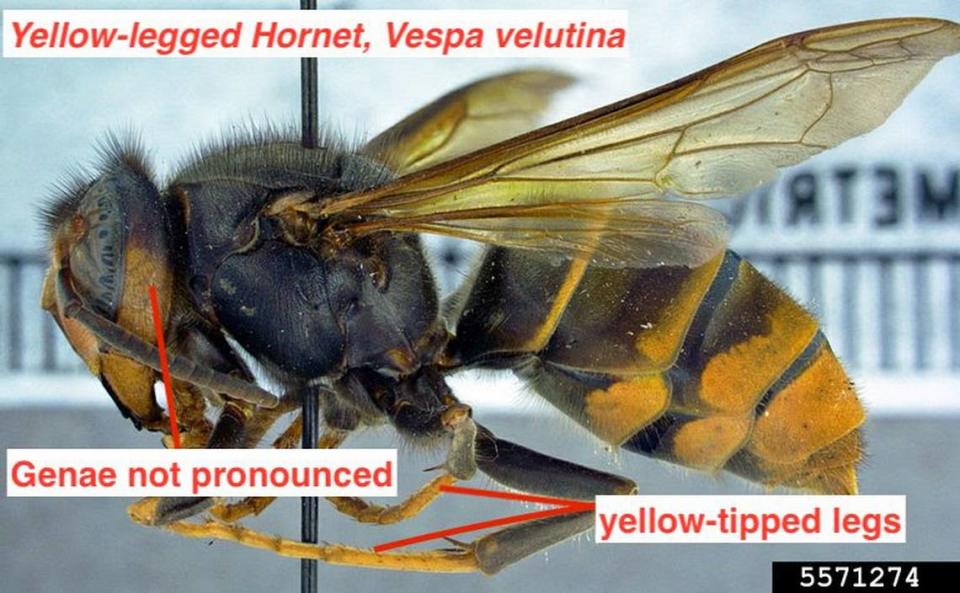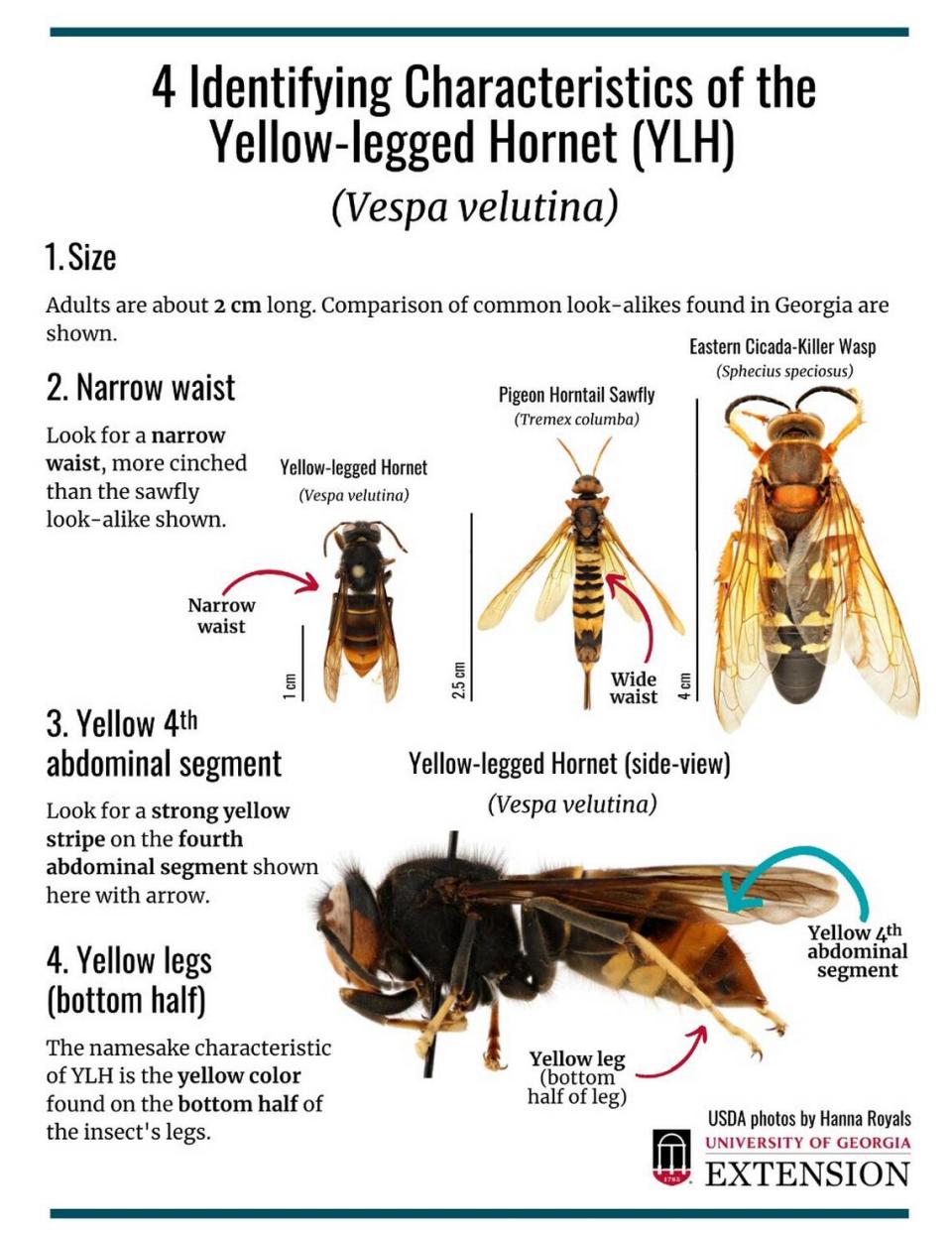Invasive yellow-legged hornet queen captured in Jasper County. How they kill honey bees
The honey bee killer the yellow-legged hornet (Vespa velutina) has now been found a second time in South Carolina.
The hornet was caught in a baited trap on March 14 in Jasper County, about three miles from the border with Georgia, according to a Monday announcement released by Clemson University’s Department of Plant Industry.
The invasive hornet was a queen, removed from the environment before being able to start a new colony.
Brad Cavin, apiary inspection coordinator with Clemson University, said it was his department that caught the hornet with a bait trap.
“It was a little bit of luck and a little bit of learning and figuring out how these hornets operate,” Cavin said, “having the right kind of baits in there at the right time of year because (queens) need the carbohydrates from the sugar to build up and get going (to start their nest).”
Hornets nests, usually high in trees, hold on average as many as 6,000 worker hornets.
Silence of the honeybees
Cavin says the nickname for this hornet is a “bee hawk” and laid out the following scenario for the brutal last moments of a honey bee’s life.
First the hornets locate a bee colony and wait for a forager bee, laden with pollen and nectar, to come back to the nest.
One-by-one, the hornet picks forager bees off before they get back to the nest, leaving the colony undisturbed.

And then the real carnage begins.
With bee in tow, the hornet finds a place to perch and then becomes a cannibal — cutting off the honey bee’s wings, legs, head — eating the thorax and the abdomen.
“So the (honey bee) colony eventually will get weaker and weaker over time and then succumb,” said Cavin.
Are they coming from Georgia?
Cavin says it’s unknown how the honey bee killers are arriving.
“It’s likely that it (hornet) came in through a port, but there’s not 100% proof that’s how it got here.” Cavin said.
The first invasive southeast Asia hornet was confirmed in Savannah in August.
By October, five nests had been found and destroyed in the Savannah area, according to the Georgia Department of Agriculture via Morning AgClips, a website devoted to national agricultural news.
The report notes that the largest of the nests was the size of an exercise ball and was located about 60 feet up a pine tree in the Town of Thunderbolt.
“They can’t fly away (hundreds of miles) and establish a new nest,” Cavin stressed. “These hornets that we’ve found have only been found in Jasper County near the Georgia state line.”

Why it’s important to report sightings
In the United States, honey bees contribute more than $20 billion to the economy, according to a 2020 Land-Grant Press paper written by Clemson University’s Benjamin Powell.
Powell wrote his paper to alert the bee world on the “what ifs” on the hornets arrival and stressed early detection would be key to keep the threat mitigated.
It took about three years after his writing for the hornet to arrive.

South Carolina has a bustling commercial migratory honey bee industry, and an invasion of yellow-legged hornets could be a problem for beekeepers or some farmers in the Lowcountry. Barefoot Farms on St. Helena Island hires beekeepers to bring hives to its fields to help pollinate crops.
A call to the Beaufort/Jasper Beekeeper’s Association for comment was not returned.
Cavin stressed the importance of the public’s help in documenting their findings of the invasive hornet, including photos of the suspected hornet if safe to do so. “The threat that (yellow-legged hornet) poses to agriculture and how they impact honey bee colonies, honey bee health and also just pollinators in general ... that’s why it is of concern.” South Carolina residents can report sightings or nests at Clemson’s Apiary Inspection Program survey for yellow-legged hornets.

